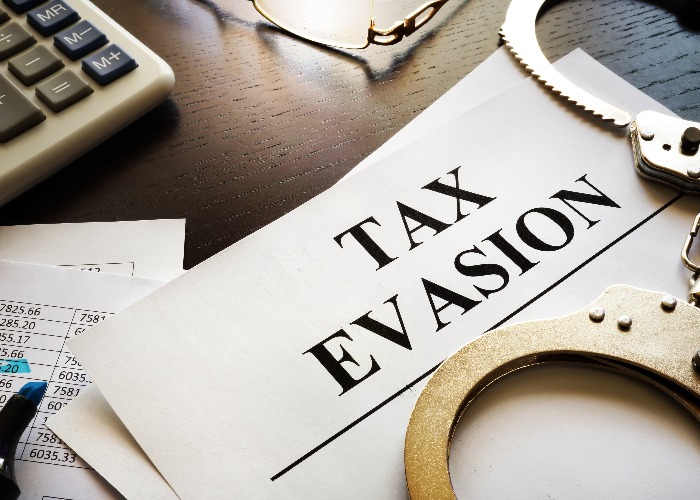Tax evasion: HMRC pays millions to those reporting suspected tax fraud

Disgruntled employees and former spouses among common tax informants.
Reporting tax evasion to the authorities isn’t just the morally right thing to do ‒ it can also boost your own finances.
A Freedom of Information request by The Telegraph has revealed that, over the last five years, the HM Revenue & Customs has paid out around £2 million to tax whistleblowers, those who have reported believed underpayment of taxes by their friends, family, colleagues, neighbours and the like.
The last financial year has been a bumper one for these payments too, with a whopping £400,000 handed out to informants, with the taxman having received 120,000 reports of apparent tax wrongdoing over the period.
So how do these reports work? And what determines how much an informant is paid?
20 ways to LEGALLY pay less tax
Giving the taxman a lead
While the taxman is very open about the fact that it encourages this sort of whistleblowing, it isn’t that open about the payments it makes to informants.
Ultimately, the amount paid will vary by case, depending not only on whether the information was accurate but also how much money it was able to retrieve as a result.
According to the tax experts at RPC, in years gone by these payments have often been to disgruntled employees, or former employees, who have reported suspected tax evasion from their bosses.
The firm said that another useful source of information can be the spouses or ex-spouses of fraudsters, who are aware of what their partner has been up to and is able to lead HMRC to the evidence.
Coronavirus scheme frauds
There has been speculation that this is a route the taxman will increasingly lean on in the years ahead, as it attempts to tackle the large scale of suspected fraud related to support schemes launched during the pandemic.
In its own annual report, the taxman admitted that it believes almost 9% of the sums handed out through schemes like furlough and ‘eat out to help out’ ended up in the hands of fraudsters.
That works out at more than £5.5 billion.
The taxman was quick to defend itself here, noting that the schemes were designed and launched swiftly given the dire state of the emergency, and were later tightened when potential weaknesses were exposed.
What’s more, its ‘taxpayer protection taskforce’ ‒ which was launched earlier this year and accounts for more than 1,000 HMRC officials ‒ is forecast to recover £1 billion of that lost sum, with 23,000 investigations into apparent fraud ongoing.
The revelation around the sums paid to informants is all the more interesting, given the report last week from the National Audit Office which questioned how well equipped HMRC is to collect the taxes owed.
How do I report tax evasion?
HMRC has a number of online forms that allow you to report suspected fraud, with separate options for general tax fraud, fraud involving the likes of VAT, customs and excise, as well as a third form for fraud related to Coronavirus-related support schemes.
If you don’t feel comfortable going down the online route, then you can call the HMRC reporting hotline on 0800 788 887.
You’ll need to provide some details about the person or business you are reporting, why you think they are evading tax, and what your connection is to them.
However, you don’t actually have to share any of your own personal details ‒ you can do it all entirely anonymously.
Is it wrong to snitch?
Whenever figures around these payments are published, it seems to me that they are often presented in a very negative way, referring to people as ‘snitches’ or ‘grasses’.
To me, that is more appropriate if, say, a child tells an adult if one of their friends has done something wrong, rather than flagging up an illegal offence to the authorities.
Because let’s be clear, that’s what tax evasion is.
Most of us wouldn’t think twice about phoning the police if we thought there was a burglary or an assault taking place down the road yet, when it comes to financial crime, being the one to raise the matter with the authorities somehow marks us out as being in the wrong?
Well, that’s absolute nonsense in my view.
Ultimately, we need the taxman to collect the money that’s owed to pay for the public services we all use.
If they are to be properly funded, then that means fraud needs to be as low as possible, so there should be no shame attached to reporting evasion to the authorities.
Would you report someone for tax evasion? Share your views in the comment section below.
Comments
Be the first to comment
Do you want to comment on this article? You need to be signed in for this feature